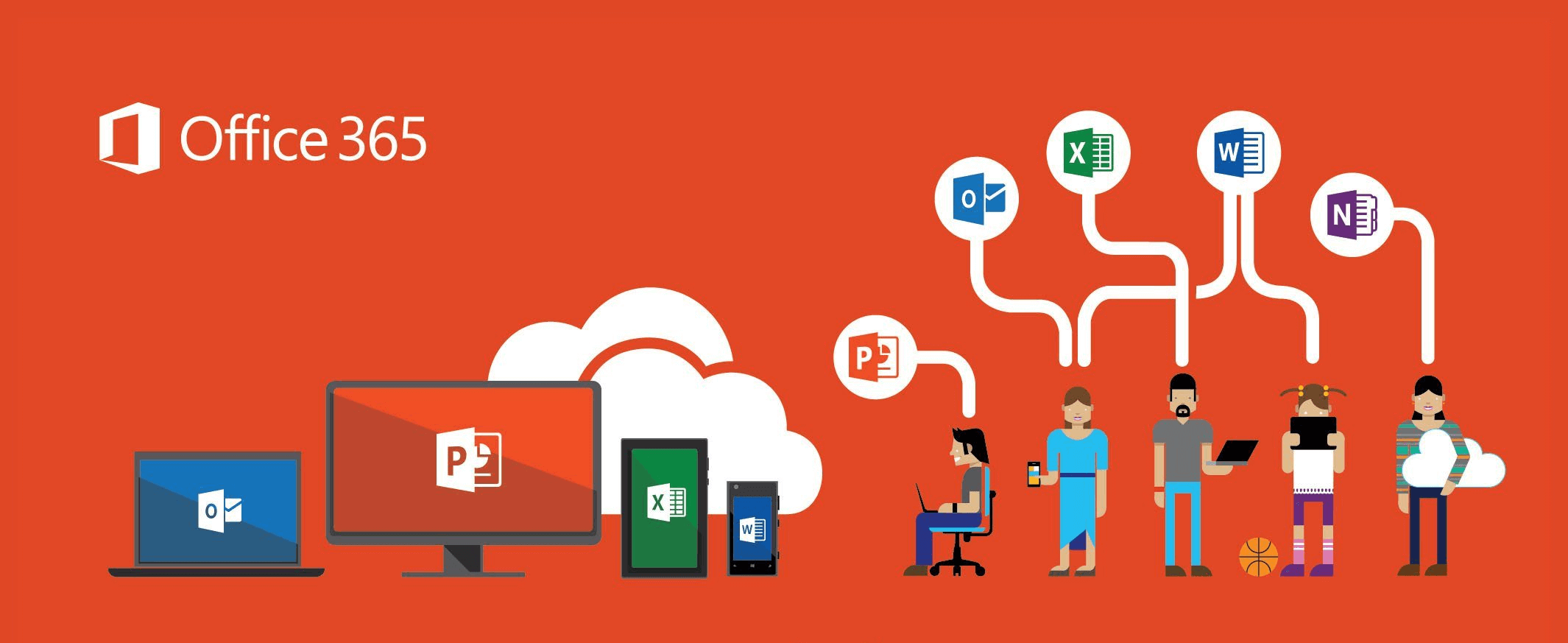Collaborate for free with online versions of Microsoft Word, PowerPoint, Excel, and OneNote. Save documents, spreadsheets, and presentations online, in OneDrive. Microsoft 365 documentation. Find the solutions, scenarios, and resources you need to get started with Microsoft 365 for your business or organization.
This is a question that comes up all the time—Is Microsoft Office 365 considered a cloud solution or Software As A Service?
I guess it all comes down to interpretation. Cloud technologies are all the rage these days. Businesses now have many options when it comes to their computing environment. They can elect to go 100% and put all of their technical resources in a cloud environment, either shared or dedicated. Or, they can store protected data on a private cloud while retaining the ability to use resources from the public cloud. We call this a “hybrid cloud” in our techy circles. Or, they can elect use shared resources like Microsoft Office 365.
So, is Microsoft Office 365 a cloud solution or a Software as a Service solution? Maybe it’s a bit of both.
Many companies are making the move to Office 365. More are now benefitting from its benefits. Microsoft Office 365 provides any-sized organization the ability to use email, work on projects, share information with coworkers in the office, or with partners outside the organization. It’s now mainstream and used by businesses of all types.
However, sometimes there’s a bit confusion about where Office 365 fits in. Is it the same thing as the Cloud, or is it something else?
To understand where Microsoft Office 365 stands, it’s important to know the difference between the Cloud and Software as a Service (SaaS). The Cloud is part of the larger titled Cloud Computing. Cloud Computing is an information technology (IT) paradigm that provides users access to shared pools of system resources and higher-level services that can be rapidly provisioned with minimal management. Cloud Computing involves the sharing of resources, similar to Microsoft Office 365. For this reason, many think Office 365 is the same thing as the Cloud.
Microsoft Office 365 does allow you to access files and information in an easy-to-use, shared pool. It makes emailing and working with others easy, much like the Cloud. However, the Cloud is more than just sharing files and information. Cloud technologies can be confusing. But to keep it simple, when using the Cloud, businesses shift their onsite technologies to the Internet (either private or shared).
The Cloud frees businesses from the maintaining of servers, telephone equipment, and other IT solutions. With the Cloud, computing resources are housed online so they can be accessed from anywhere with an internet connection. With a private cloud, resources can only be used by your authorized users.
In contrast, SaaS is a licensing and delivery model where the software is provided on a subscription basis and is centrally hosted. SaaS is typically accessed by users via a web browser. When looking at Office 365, this seems like a much better fit as far as categorization goes. In other words, SaaS is an application that’s not housed on premise.
Microsoft Office 365 is a subscription-based service that’s accessed through the Internet on a web browser. It’s not stored on your computer—You must launch it through a web browser each time you use it. SaaS applications can be run in the Cloud, but this doesn’t make them a Cloud.
The confusion surrounding Microsoft Office 365 stems from the fact that it’s accessed via a web-based system -similar to the way cloud computing allows you to share and work on various projects regardless of your physical location. It’s important to remember that it’s not stored on your computer. You can access Office 365 from wherever you are, on any computing device, as long as you have a subscription and an internet connection. It’s the same with any SaaS solution.
There’s a huge difference between cloud computing and SaaS. The Cloud’s focus revolves around virtual computers/servers, data storage capacity, communications, messaging, networks, and development environments. This isn’t the case with SaaS. SaaS is an application. SaaS is better suited for our purposes, than is the Cloud is.

When comparing the two systems, look at services they offer and how they can benefit your business. This will help you understand how Office 365 can work for your business purposes. The Cloud is better suited to large enterprises, that are involved in software development or other complicated computing processes. SaaS is for those who depend on software applications, which include all of us. Office 365 is simple to use, as exemplified by its widespread use ranging from company executives to college students. For these reasons, it would be considered a Software as a Service.
Does this mean that you can only use one or the other?—That you must decide between the Cloud or various SaaS applications such as Microsoft Office 365? No, it does not. The great thing about Microsoft Office 365 is that, because it’s more like an application, it can be run on both cloud servers and physical servers.

Microsoft 365
Microsoft Office 365 is a versatile tool that offers a multitude of functions that will make your work life much easier. To understand Microsoft Office 365 just remember, it’s a web- based system that allows you to access pools of files and information, not a server focused on data storage and capacity.
Product by Microsoft
A complete, intelligent solution, including Office 365, Windows 10, and Enterprise Mobility + Security, that empowers everyone to be creative and work together, securely. Microsoft 365 brings together productivity, security, and OS/device solutions into a single, comprehensive offering—growing your revenue potential.
Today, you’re facing demands from a market that wants your offerings moved to the cloud. Global competitors selling commoditized services at aggressive price points. Margins squeezing you to reduce costs and maximize efficiencies. How can you differentiate and recapture services revenues in current customer accounts while acquiring new ones?
Consider Microsoft 365 Business. Designed specifically for partners like you who work with small and midsize business (SMB) customers. And positioned to help you improve profitability, expand your services portfolio, and retain loyal customers.

Lead with security to modernize your customers’ desktops.
- Accelerate cloud migration by using Microsoft Security solutions.
- Keep your customers up to date on Windows 10 and Office 365 ProPlus.
- Proactively seize opportunities like the General Data Protection Regulation (GDPR), and address emerging cybersecurity threats.
Provide advanced enterprise services based on Microsoft 365 Enterprise intelligence capabilities.
Microsoft 365 Cloud Services
- Develop on the Microsoft Graph to customize solutions like smart workflow.
- Help customers interpret and respond to risks surfaced from threat detection dashboards like Cloud App Security and Threat Intelligence.
- Build tailored solutions built on analytical platforms such as Power BI and Excel, enabling customers to make data-driven decisions.
Microsoft 365 Cloud
Microsoft 365 Cloud Apps
Leverage broad Microsoft 365 Enterprise value to drive holistic customer conversations.
Microsoft 365 Cloud Fonts
- Expand your offerings to serve all employees, including information workers and Firstline workers.
- Enable teamwork—and customer success—with collaboration tools like Microsoft Teams and SharePoint.
- Provide end-to-end security solutions by taking advantage of the Microsoft Intelligent Security Graph.
Microsoft 365 Cloud Based
- Microsoft 365 on www.microsoft.com
See how to position Microsoft 365 to your clients. - Microsoft 365 Business Documentation
Learn about how to get started with Microsoft 365 Business. - Forrester Total Economic Impact Study: Partner Opportunity for Microsoft 365 Enterprise
Quantify the partner opportunity for Microsoft 365 - Gartner Industry Addressability Report
Identify the key regions and industries that could provide growth areas for Microsoft 365 - Microsoft 365 partner launch presentation from Inspire 2017
Hear Microsoft explain the value of Microsoft 365 for your business during the launch at Microsoft Inspire 2017
